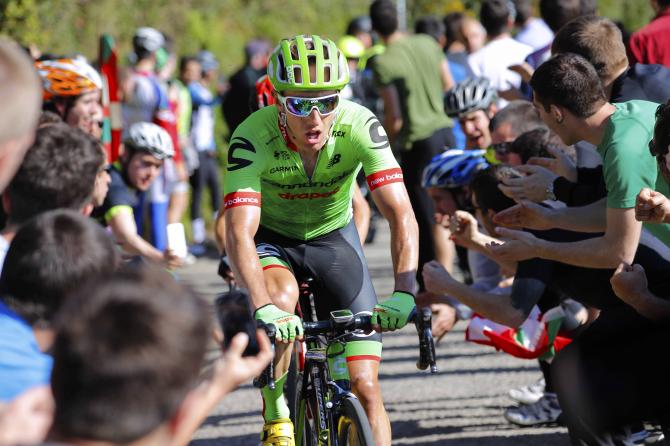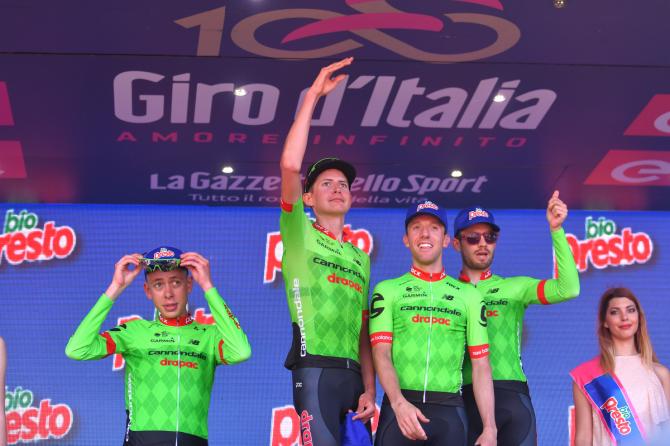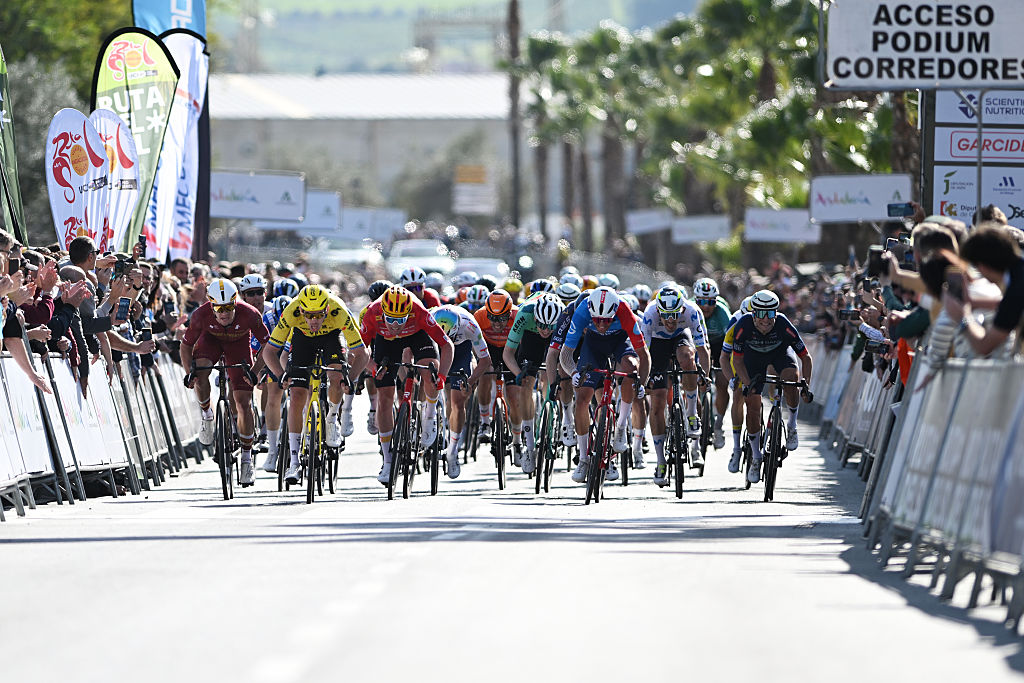The running man heads to the Vuelta a Espana - Q&A with Michael Woods
Canadian on riding a second Grand Tour and no longer being a menace to the peloton
The latest race content, interviews, features, reviews and expert buying guides, direct to your inbox!
You are now subscribed
Your newsletter sign-up was successful
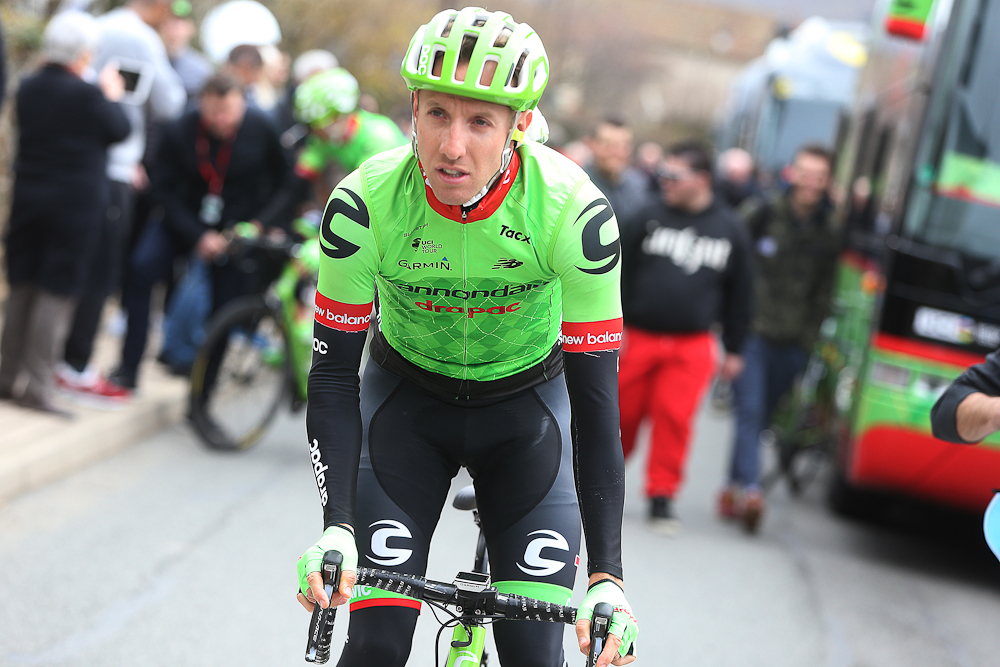
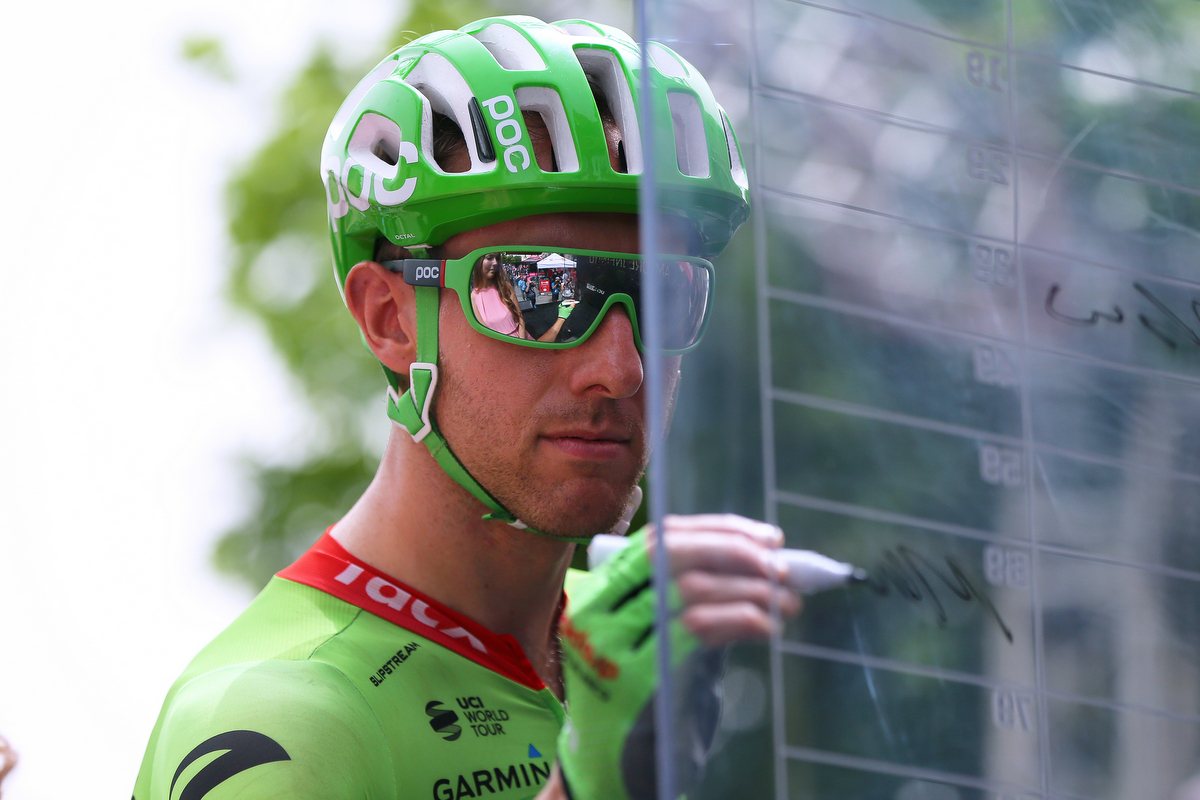
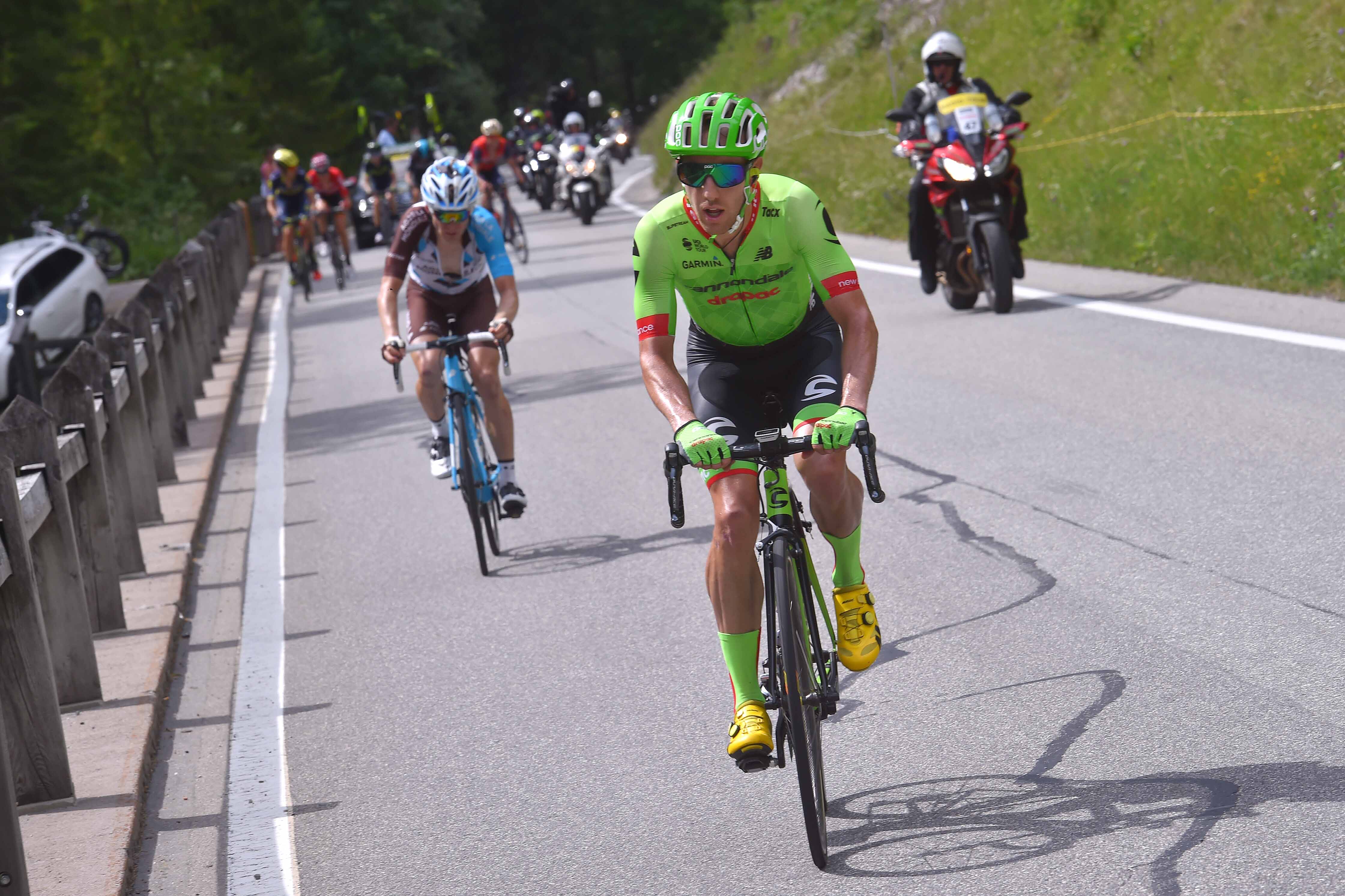
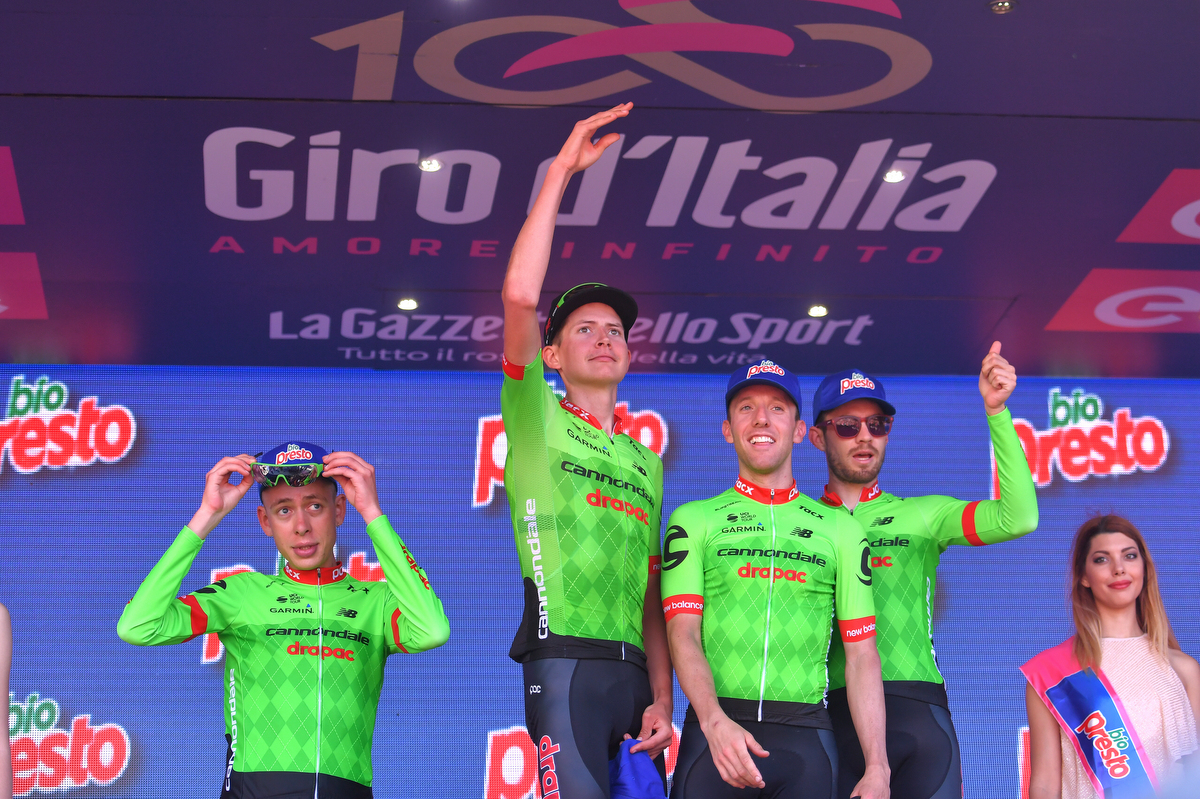
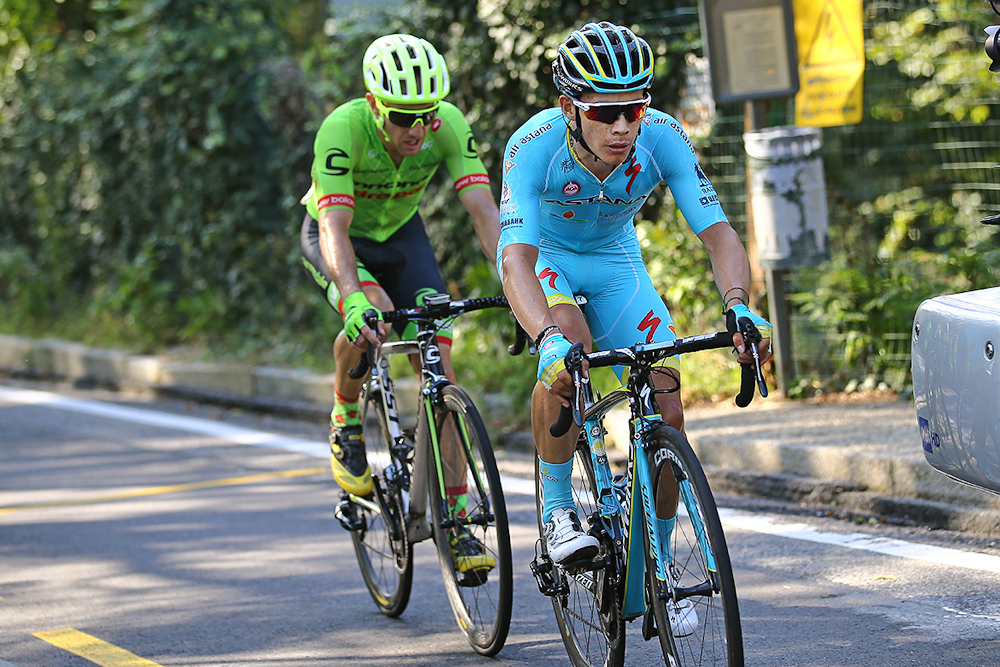
After stepping up to WorldTour level last season and making his Grand Tour debut at this year's Giro d'Italia, Canadian Michael Woods (Cannondale-Drapac) is about to embark on his second three-week race of the season at the Vuelta a Espana.
Woods had a busy start to the year with 61 race days in six months. However, after a long break and a training camp in Colorado he is ready to take on the last part of his season, which includes a trip to the Italian Classics after the Vuelta a Espana, but sees him miss the World Championships.
Cyclingnews caught up with the 30-year-old former international runner to talk about his hopes for the Vuelta, why he is inspired by teammate Pierre Rolland, what it's like debuting at a Grand Tour as an older rider and why he no longer feels like a menace to the peloton.
Cyclingnews: You rode your first Grand Tour earlier this season. How does it compare building up to your second?
Michael Woods: This one, I had a much better run at in terms of training. In the lead up to the Giro, I was so focussed on the Ardennes Classics, and the Giro was almost an afterthought, so I was running a bit on fumes at the Giro. I had a break after the Tour de Suisse, and I have had some time to relax. I went home to Canada and caught up with my family and hung out with my wife and had a good time in Canada. Then, I went to Colorado and did a really good training camp with Alex Howes in preparation for this. I think I've had a really good run at training and I feel mentally relaxed and fresh for this after a nice build-up.
CN: What is the plan for you at the Vuelta?
MW: Right now, because I'm going into the unknown this season and I've already had a big calendar, we're not putting on any big expectations. The team goal is to win a stage, and I think the way that I rode the Giro, I proved that I had the ability to win a stage. I won the bunch sprint on stage 6 and then on stage 8, I came second from the bunch sprint. I think that I have the ability to win from the field and I'm just hoping to replicate that. I hope that things play out a bit better from a luck perspective.
The latest race content, interviews, features, reviews and expert buying guides, direct to your inbox!
CN: It has been such a long time since you raced. How are your legs?
MW: I'm fit, I know that, but I don't have anything to gauge that with. It's one thing if your computer screen is reading digits that are good, and it's another thing about being able to compete with the best guys in the world. They don't necessarily equate. Obviously, putting good numbers out is a necessity for competing with the best guys in the world, but it doesn't mean you're going to. I think that I'll get a much better feel for that after the first week of the Vuelta. That's the other reason I came in a bit fresh. Obviously, I want to do well at the Vuelta, but I think it's also great preparation for the Italian Classics which are a big goal for me.
CN: Is there anything that you learned from your first Grand Tour that you can take into the Vuelta?
MW: Yeah, big time. I was really lucky to race on a team with Pierre Rolland at the Giro. He was courageous in the race. He would attack so many times before he got into the break, and it kind of spat in the face of a lot of what you're taught in cycling. Everyone tells you that you've only got six bullets that you can use, or you have to suck wheels as long as you can. Yes, you have to be tactically adept and you have to be smart, but in order to win at the WorldTour level you have to be courageous, and that's what Pierre was.
The level of fearlessness he brought to every stage was inspiring. Seeing that really influenced me and I hope that I can use some of that inspiration. I think the way that I raced at the Tour de Suisse; when I was in a breakaway on stage 6, I attacked and managed to stay away for a long time for 20-something kilometres. I almost won, but I screwed up the final descent, but I think that Pierre Rolland was the catalyst for that.
CN: With Rolland at the Giro and then Uran at the Tour, what is the feeling within the team after having two successful Grand Tours?
MW: I feel really lucky to be on a team with both of those guys. I've learned a lot from Pierre this season; I didn't race with him too much last season. I've raced with Rigo quite a lot, and he's just another example of a guy who wears his heart on his sleeve. He races with panache. He raced so well at the Tour, and there's definitely a good vibe on the team.
We didn't start this season with the bang that we wanted to. We were criticised at points, talking about how slow of a start that we had. Now the momentum has turned and instead of being this have-not team we're looked at as one of the stronger teams in the peloton. Even when I was riding in Colorado, people would shout "go Rigo, go" and that was pretty cool. We definitely have a bit of swagger and a bit of a presence in the cycling community, and that's cool.
CN: Does that carry you into the Vuelta with confidence, but also with the pressure taken off?
MW: I think so. We're coming into this race with no big expectations. Pun not intended, but we are such a green team at this race. Minus Simon Clarke, who brings a wealth of experience, this is a pretty inexperienced group of guys with four Grand Tour debutants, so the expectations aren't huge.
CN: You're one of the older members of the team, does that feel a bit strange?
MW: Will Clarke is the oldest at 31, and this is his first Grand Tour. I'm definitely one of the oldest guys here, and it's strange for sure, especially coming from a team like Optum where at 28 I was one of the youngest guys on the team, and here I'm one of the old guys. Now, I'm starting to feel like I belong in the WorldTour. I have so much to learn, and I'm learning constantly. I definitely don't feel like I'm 30 from a racing perspective, but sometimes when I'm hanging out with the guys at dinner, I do feel a bit older for sure.
CN: 30 isn't exactly old in the grand scheme of things, but in terms of making a Grand Tour debut it is. What is it like making a Grand Tour debut as a slightly older rider?
MW: It's weird, because you feel like all these guys that are younger than you, that you have more life experience than them, view you as being this rookie. It's true that you are a rookie in so many ways. In a lot of things that matter outside of cycling, you're vastly more knowledgeable, but the way that the cycling dynamics work you're looked at as this youthful inexperienced guy.
In cycling that's true, but I can relate a lot more to some of the DSs on the teams in terms of life experience. Compared to some of the DS, I've worked longer than they have. I worked for four years at a desk job. There's such an arrested development in cycling that I know guys coming out of cycling at 30 that have the same life experience as someone who is 22.
CN: You've done quite a few sports in your career, including running, how does racing a Grand Tour compare?
MW: Mentally, it is probably the most difficult thing that I've done. I was reading an article from a guy in Ireland, and he was talking about how running is more difficult than cycling. He couldn't have been more off the mark. Running is very difficult, and the training you have to do and the discipline you have to have is comparable and maybe more difficult than cycling.
That being said, doing a Grand Tour is vastly more challenging than anything I've ever done in running. Mentally, it's so much more difficult to handle. You have to be able to compartmentalise a lot better. You can't think about the race in its entirety, because you'd just get so overwhelmed.
No longer a menace in the peloton
CN: Looking at your season as a whole, what are your thoughts on how it has gone so far?
MW: The first year was a bit of a rollercoaster. I describe it as a bit of a half-pipe. I started great, and then I went absolutely terrible, because of stupidity on my part and then some bad luck, but then I came back really strong at the end of the season. I think that the season proved that I had the talent to race at WorldTour level, but it didn't show that I had the consistency or the resilience or the peloton skills yet.
This season I came in with the goal of proving that I had the ability to read a race, be positioned well going into climbs and to be robust and consistent. That's why I'm really glad with the number of race days I've done this season. It's testament to my newfound abilities to be consistent, more robust and not to crash every race.
CN: Did you really notice that difference this season?
MW: I'm still learning for sure. I still have a lot to learn, but I don't feel like I'm a menace to the peloton anymore. I feel like there is a greater level of respect given to me from other riders in the peloton. I feel more confident.
CN: Do you feel you have a bit more of a grasp on what you're capable of?
MW: I think so. I think this year, I had some results and some performances that showed me that I'm capable of competing with some of the best guys and some of the best climbers on shorter punchy climbs. With that confidence, I'm really looking forward to this race and the seasons to come because I think that I can build on that and be a guy who's got a shot at winning some big races.
CN: Do you feel you've got that win in you?
MW: Yes, I really do.
Born in Ireland to a cycling family and later moved to the Isle of Man, so there was no surprise when I got into the sport. Studied sports journalism at university before going on to do a Masters in sports broadcast. After university I spent three months interning at Eurosport, where I covered the Tour de France. In 2012 I started at Procycling Magazine, before becoming the deputy editor of Procycling Week. I then joined Cyclingnews, in December 2013.
